There’s barely a week goes by without somebody asking me in the Facebook Group for advice on what the best life coaching books for coaches,
Rather than keep telling people, I thought it would be easier if I put all the books I consider have been the most important to me in my journey from wannabe coach back in 2004 to now.
That way, you can decide the most suitable life coaching books for you.
You will notice that not many are on coaching per see. That’s for two reasons.
Firstly, I haven’t read that many excellent books on coaching.
More importantly, as coaches, we need a broad base of coaching knowledge to succeed and help us become as adaptable as possible.
Too many coaches gain coaching knowledge but ignore the field of psychology and human behaviour because they think they are overstepping the mark.
Well, if that is the case, I’ve overstepped the mark scores of times because I freakin’ love reading books on what makes us tick.
So here goes with 30 of the best life coaching books.
Other than the first three, all the books are in random order.
The only difference with the first three is that every new coach should read all of them.
All links to Amazon are affiliate links.
30 of the Best Life Coaching Books

1. The Coaching Habit by Michael Bungay-Stanier
When I got asked to review this book, I was reluctant.
Do you know what persuaded me to agree?
It was pretty short.
I know, I know, I’m that shallow.
I didn’t even enjoy the start as it seemed too slanted toward management and business than coaching per se.
But boy, am I glad I stuck with it.
It’s a fantastic life coaching book for new and even established coaches like myself.
Bungay-Stanier offers up some killer questions, one of which had me cursing that it wasn’t in the PDF on a question asking that I give to course attendees. It is now!
I confess I can tend to slip into small talk at the beginning of coaching calls, and this book is the antithesis.
Bungay-Stanier believes you can coach people in ten minutes or under if you cut to the chase. And he’s right.
His question to kick off coaching calls of, ‘What’s on your mind?’ is both simple and very powerful at getting straight to the heart of the matter.
This list isn’t really in order, but if it was, this would still be number one.
Grab The Book
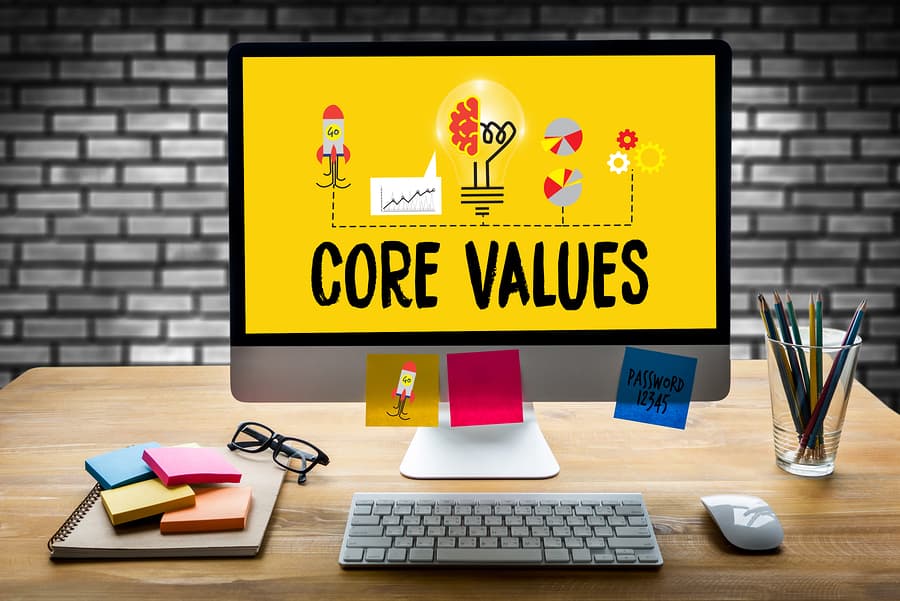
2. The Clarity Method by Tim Brownson
What?
What?
Oh come on, you didn’t expect me not to include easily the best life coaching book I have written, did you?
The Clarity Method takes a deep dive into the world of core values, and I share with you the most important work I do with traditional clients.
Core values work has given me more breakthroughs than every other tool I use combined. And then some.
The book also includes access to a video explaining how to use the process and a demo of me working with a client.
It’s a bargain!
Grab the book

3. The Life Coaching Handbook by Curly Martin
This was the first book I ever read on life coaching, and I liked it enough to sign up to train with Curly Martin’s course.
It’s really aimed at total newbies and it is a bit UK-centric, so some of the advice may be redundant to people outside the EU.
Having said that, it’s a cool introduction to life coaching and if I’d never picked it up back when there were real bookstores, I probably wouldn’t be typing this post now.
Grab The Book
4. Co-Active Coaching by Kimsey-House, Sandahl, Whitworth
Probably the seminal life coaching book that spurned an entire industry.
Pretty much every life coach training company worth its salt teaches at least some elements of Co-Active Coaching.
Why?
Because it has been scientifically proven to be the best modality for helping elicit permanent beneficial change with clients.
Co-active coaching is all about asking great questions and helping your clients see things differently.
That is pretty much all we’re paid to do.
I have one beef with the book and one with the concept.
Whereas the book is fantastic at explaining the basics of this type of coaching, the scripts of examples of coaches working with clients are pretty lame.
The reason is, every script suggests an ideal scenario where you say ‘this’ and your client will automatically say ‘that’.
Real-world coaching is seldom like that, so the book doesn’t help the reader with tricky clients or when things frequently go off-script.
The second part is that in my mind Co-Active Coaching is by some way the best modality, but it’s not the only one and it doesn’t always work.
They are minor quibbles though and I recommend this book to anybody serious about coaching or becoming a coach.
Grab The Book

5. Making Habits, Breaking Habits by Jeremy Dean
British psychologist Dean runs the highly popular PsyBlog where he takes a scientific look at all things related to psychology and how the brain works.
There are many reasons to love ‘Making Habits, Breaking Habits’, not least of which he explodes the self development urban myth that habits take a predetermined amount of time to implement.
Of course, they don’t; it depends on so many factors.
Although he did reveal that the average time is 66 days, which is worth pondering when you think you can build a gym habit in 28 days after reading it in ‘7 Habits’.
He also goes on to dismiss other myths, my favourite of which is that worrying serves no purpose.
I have to confess to believing this after hearing a talk by Wayne Dyer a decade or so ago.
There are a group of people called ‘defensive pessimists’ who actually perform better at work than other people.
Their worrying allows them to foresee and thus deal with setbacks more easily than people who are constantly thinking happy thoughts.
It makes sense when you think about it.
Grab The Book

6. Your Brain At Work by David Rock
An absolute classic and a book that has never strayed from my top 3 of all time since I first read it and then listened to it – yes I did buy the hardcopy and the audio version.
David Rock isn’t a neuroscientist, but he takes cutting-edge research from that industry and distils it to help us understand not just how our brain works, but more importantly, how we can apply that information in real life.
It won’t just help you understand how your brain works, but why it sometimes doesn’t work as well as expected and what its limitations are.
And, of course, if you know that about yourself, it also helps you understand your coaching clients better too.
If you aren’t convinced about reframing or think you can multitask better than the average bear, this book may have a few surprises for you.
A fabulous life coaching book that has given me hundreds of pounds/dollars of value.
Grab The Book

7. Barking Up The Wrong Tree by Eric Barker
Very rarely these days do I read a book on pop psychology that blows me away. It’s not that there aren’t plenty of great books on the subject, because there are.
It’s more of a reflection of the fact that I love the topic so much, and I’ve read so many that I tend to be already familiar with the research and stories they focus on.
Barking Up the Wrong Tree: The Surprising Science Behind Why Everything You Know About Success Is (Mostly) Wrong was like a breath of fresh air and the first book I’ve read on the topic that I can honestly describe as a page-turner.
If you have been reading my material for any length of time you will know that I absolutely love exploding the myths and lies of self development.
I get exasperated by people who regurgitate alternative facts such as ‘we only use 10% of our brain’, ‘a leopard cannot change its spots’ and ‘you can achieve anything you set your mind to’ without ever stopping to think if they’re true.
Fortunately for me (and you), Eric Barker seems to think the same way and researches the shit out of common wisdom that is all too often common but frequently not very wise.
He opens up the book by telling you about a girl who couldn’t feel any pain.
What was your gut reaction to that?
Mine was, ‘Oo baby, that would be so awesome!’
But of course, it’s not awesome it’s a major problem. Pain is there to alert us to something that’s wrong and if we cannot feel it, we cannot do anything to rectify it.
In fact, we can exacerbate matters. Imagine not knowing you have a hairline fracture in your leg as you set off out for a long run.
I’m sure every now and then you’ve bitten your tongue, right? It hurts, doesn’t it? Our first response is to back right and off and eat our food differently.
People who cannot feel pain cannot do that, and a common problem for them is something as benign as biting their tongue leading to abscesses forming an infection setting in.
Barker will tell you why being confident is a bonus and also why it can be a curse.
Why it’s great to suck up to people to get on in the workplace, and why it won’t help you get on at all.
Why helping others will help you become more successful, and why helping others may prevent you from succeeding.
And why grit is so important, except when you should quit.
Confused?
Yeh, well welcome to the human race because we’re a weird bunch.
Oh, and he also takes a look at my favourite topic, core values and explains why pirates really were a very cool bunch.
What’s not to love about all that in a life coaching book?
Grab The Book

8. Methods of Persuasion by Nick Kolenda
Whereas this book didn’t offer much new research that I hadn’t read or heard about before, but it’s a topic I read about a lot.
However, what it did do exceptionally well was curate much of the groundbreaking information on persuasion.
I am a huge believer in coaches reading books on popular psychology.
I understand that we are not psychologists, but the more we understand about the way our clients think and make decisions, the better situated we are to help them.
Kolenda grabs research from many of the greats of psychology and behavioural economics like Amos Tversky, Daniel Kahneman, Robert Cialdini, Dan Ariely, Richard Thaler and many more and presents it in an easy-to-digest and fun style.
And there is another benefit to life coaches reading this book other than getting a greater understanding of the flaws in human thinking.
That is to be able to market better.
The more you understand how people make decisions the better you will become at being able to tailor your offerings so your ideal client.
Grab the book
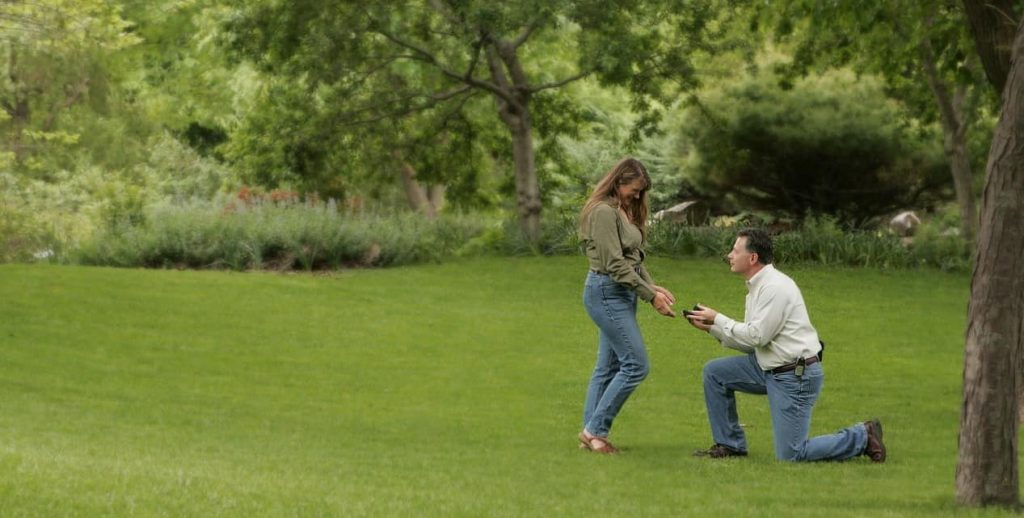
9. The Power of Full Engagement by Jim Loehr and Tony Shwartz
I read this book just as I was getting into coaching, but a revisit a couple of years ago demonstrated it’s still as relevant now as it was when it was published in 2003.
It’s the first book ever written (that I know of anyway) that transfers techniques developed by the authors to help athletes perform at a top-class level, to the world of business and self development.
Loehr and Swartz suggest that you’re only as strong as your weakest link.
As such, you need to get all aspects of your life right i.e. spiritual, mental, emotional and physical if you want to excel.
They talk about the need for proper nutrition, exercise, and disengagement from work, which includes family and social time.
In short, they take a holistic approach they know works with world-class athletes and the reason it will be helpful to everybody.
Grab The Book

10. Buddha’s Brain by Rick Hansen
Quite simply a fantastic book for anybody who wants the science and research (rather than the woo-woo) behind why meditation is so incredibly effective at lowering stress, improving happiness and contentment and improving both physical and mental health.
Hansen is a neuroscientist by trade, but he’s also a Buddhist and a meditation teacher and he does a delightful job of marrying the two topics.
When I started coaching in 2005 I never mentioned meditation to clients, but by 2015 I almost never failed to mention it and it was even included on my client intake forms.
Oh, and in case you were wondering, you do not need to don a saffron robe, shave your head or even have any interest in Buddhism to benefit from this book.
If you want to know why the Buddha’s teachings are as relevant now as they were over 2,000 years ago, then this book will explain all.
Grab The Book
Grab the book

11. 10% Happier by Dan Harris
I had the great pleasure of interviewing Dan Harris for a podcast I co-hosted back in 2016, and what a nice guy he was. Funny, unassuming, intelligent and very down to earth.
In case you’re unaware of his story, he is the guy who had a panic attack as he was reading the news on ABC back in 2004.
He now puts the rather embarrassing episode down to the use of recreational drugs. And he puts the use of drugs down to wanting to escape reality.
In 10% Happier, Harris sets out on a personal crusade to find peace of mind. He talks with gurus Eckhart Tolle and Deepak Chopra and His Royal Highness, The Dalia Lama.
Eventually, he concludes that meditation could help him and starts his own practice.
There are two reasons I love this life coaching book.
The title.
Harris doesn’t claim that the book, or even meditation, can have you living a life of uninterrupted bliss, but isn’t a 10% improvement worth striving for?
Dan Harris.
Talking to him in person was like reading the book.
He doesn’t preach, he doesn’t get holier than thou, he makes you laugh and helps you think differently whilst keeping you entertained.
Grab the book

12. The Seven Habits of Highly Effective People by Stephen Covey
I’ve knocked this book in the past somewhat, for two reasons.
Firstly, it was Covey who set the myth rolling that it takes 30 days to form a habit. A myth that has been very truly debunked, not least of which in Dean’s book listed above.
Secondly, Covey could easily have fitted the pertinent advice contained in a book half the size. It felt like he was on a publisher’s word count, and there was a lot of repetition and padding.
Having said those two things, it’s hard to ignore the sage advice contained in this life coaching book.
How much better would Society be at this point in time if people really were trying to understand others before they tried to get others to understand them?
Similarly, wouldn’t life be great if everybody was looking to create win/win situations rather than treating everything as a zero-sum game?
And I think we can all benefit from putting first things first, sharpening our saw and focusing on what is truly important rather than what seems urgent.
Considered a classic by many, and rightly so.
Grab The Book

13. You’re It by Alan Watts.
You may notice a startling lack of books in this list from the spiritual side of self development.
That isn’t because I don’t care for such books, I absolutely do and have read dozens.
Instead, it’s because there are so many, and they can also sometimes trigger the wrong kind of debate.
It’s ironic that some of the nastiest arguments over books I have ever seen were about spirituality.
I decided to include this because the approach by Alan Watts is, if not unique, then very unusual as he brilliantly melds Eastern and Western philosophy whilst dismissing neither.
I’d encourage you to do what I did and buy this as an audiobook because it’s a collection of lectures.
It’s difficult to capture his genius in a book that has been proofread and edited several times.
But, when you hear him talk to lucidly and with barely an um are ah, it’s quite remarkable.
Watts doesn’t preach, and he certainly doesn’t ram religious dogma down your throat.
In fact, unless you know he practiced Zen Buddhism, it would even be difficult to know what angle he was coming from, so learned is he in so many religions and philosophies.
I have no idea how many books I have read in my lifetime, but it’s many hundreds if not thousands and no other book made me wonder and think so much.
It’s not for the closed-minded.
Grab The Book
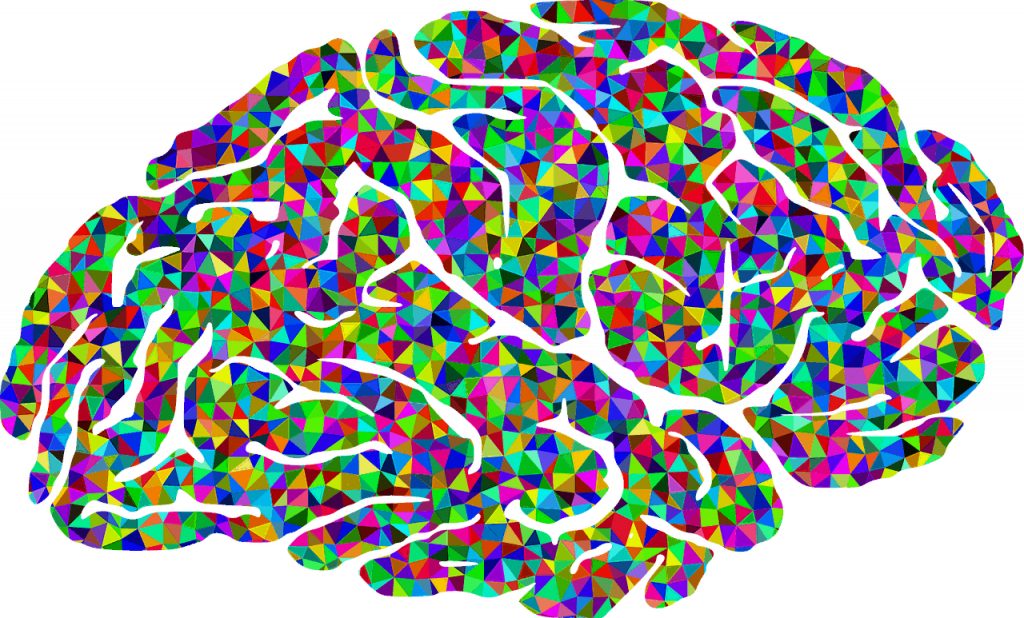
14. The Brain That Changes Itself by Norman Doidge
You’ve probably heard of the expression “neurons that fire together, wire together”
Doidge didn’t invent it, but he sure did popularize if with this fascinating look at neuroplasticity.
The part that jumped out at me was the research that suggests there seems to be no real reason (drug and alcohol abuse notwithstanding) for the brain to deteriorate as it does in most people.
The predominant cause of degeneration is the lack of the right kind of stimulation, and not because of how old somebody is.
This book will be great if you ever bristle at people that claim others cannot change and use phrases like, “A leopard never changes its spots”.
‘The Brain That Changes Itself’ gives you scientific proof as to why it’s yet another urban myth.
Grab The Book

15. The Willpower Instinct by Kelly McGonigal
I have to confess I have a man crush on psychologist and Harvard Lecturer Kelly McGonigal.
She’s a humanitarian, pet lover (and rescue helper) and a passionate advocate of meditation and compassion.
Not only that, but I loved her TED talk, and I was thrilled to get to interview her.
If I didn’t just want to limit this list down to one book per person, I could have easily included ‘The Upside of Stress’ too because it was equally excellent.
What can I say about The Willpower Instinct other than just buy the damn thing, and if you think it sucks, I’ll refund you the money?
McGonigal explains why avoidance tactics don’t work and how we can use glucose to fight our urges (presuming sugar isn’t the urge!).
She goes on to articulate why being good now can increase the possibility of being bad later and why we crave things that seldom, if ever, deliver to the extent we expect them to.
She explains clearly, and in easy-to-understand terms, what is going on in your brain when you feel your willpower waning.
And more importantly, what you can do about it.
Note: I almost included another of her books, The Upside Of Stress in this list because that’s almost as good.
Grab The Book

16. Learned Optimism by Martin Seligman
Positive affirmations and positive thinking are not always as helpful as some people in our industry would have you believe.’
If you’re being chased by a very hungry bear and you have an angry live salmon wriggling around in underwear, repeating positive affirmations and telling yourself not to worry because everything will be ok, probably won’t help (not you or the salmon anyway, the bear will be fine with it).
Being optimistic that you have the power to change things, however, would encourage you to look for solutions.
Hopefully, in no time at all, you’ll have either tossed out the fish or eaten it and died from mercury poisoning – just much more slowly than from the bear.
It’s serious science that the father of positive psychology, Seligman, presents. It’s not based on woo-woo hopes and dreams.
The remarkable conclusions about the benefits of thinking optimistically are readily accepted wisdom now and include better health, better prospects for success at work and a longer lifespan. Pretty cool, eh?
Grab The Book
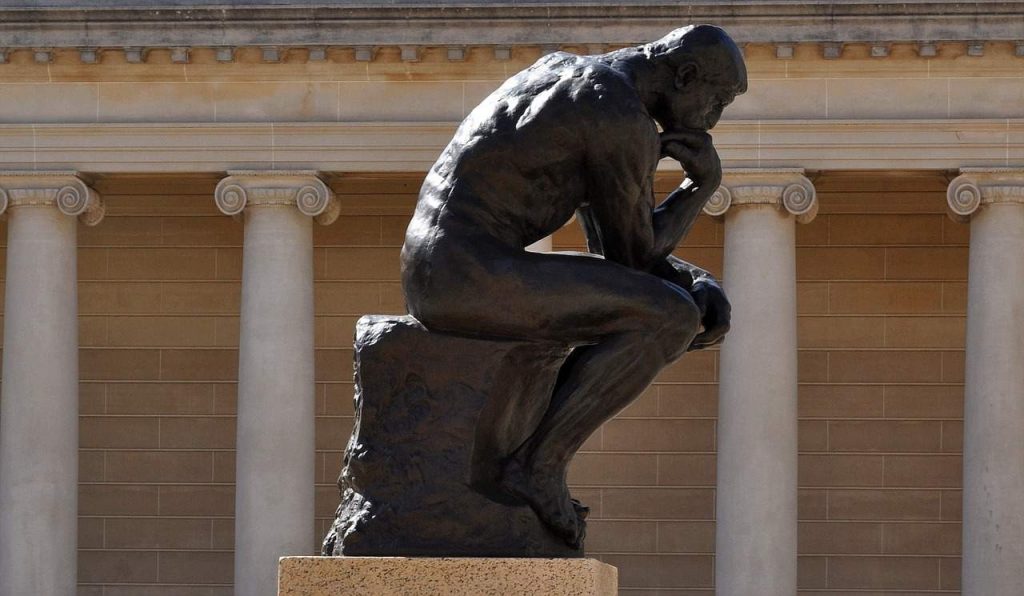
17. Thinking Fast And Slow by Daniel Kahneman
I only listened to the unabridged audiobook recently in 2017 after having it recommended by a client.
Kahneman is a giant (think Nobel Prize) in behavioural economics and the psychology of decision-making. This book demonstrates why.
If you want to understand more about cognitive biases, flaws in your client’s thinking (and your own too) and why we so often jump to erroneous conclusions convinced we are right, then buy this book.
I love how the author admits to how many times he’s screwed up by not recognizing his now cognitive biases and that he was using heuristics (shortcuts in thinking) rather than rational analysis.
Cognitive biases can catch people out who research the topic; nobody is immune.
Read More
18. When: The Scientific Secrets of Perfect Timing by Dan Pink
Dan Pink does a great job of taking a load of research on topics as diffuse as motivation, critical thinking, and even sales and distilling it into easy-to-read, highly informative and fun books.
However, I think it’s When: The Scientific Secrets of Perfect Timing where he takes his writing to a whole other level.
I was working with another coach recently who was getting stressed because he was following all the conventional wisdom by getting up early in the morning and powering through his day fueled by coffee and grim determination.
But it just wasn’t working for him, and he didn’t even really like coffee!
He was tired all the time and struggled to get up early in the morning, no matter what time he went to bed.
He told me he liked to stay up and late and get up later.
The problem is that much of the conventional wisdom surrounding self development is either wrong or wrong for certain people.
The reality is that there is no how it is, just how it is for you.
Pink explains all this in When.
That is why some people are more productive at different times of the day and why rather than trying to fit into some Society determined pattern, we all should look to do what is best for us.
When my client kicked conventional wisdom to the curb and listened to his body, he suddenly became productive again.
I think one of the most interesting parts of the book was when he explains how we are messing with the chances of our kid’s success by making them go to school too early.
Grab The Book

19. Man’s Search For Meaning by Viktor Frankl
Possibly one of the greatest books written in modern times.
Frankl spent time in 4 different Nazi concentration camps during WWII and lost all his family in the Holocaust.
Frankl escaped the gas chambers because his captors put his medical background to use.
During his time, he observed that the prisoners who survived weren’t those who were trying to think positively about the war coming to an end, but those who focussed on the meaning in their lives.
And just as importantly, the meaning they could create after the war.
He himself was determined to get through it so he could not only tell his story but also carry on his research into logotherapy using the findings he’d collected.
And happily, both things happened.
Grab The Book
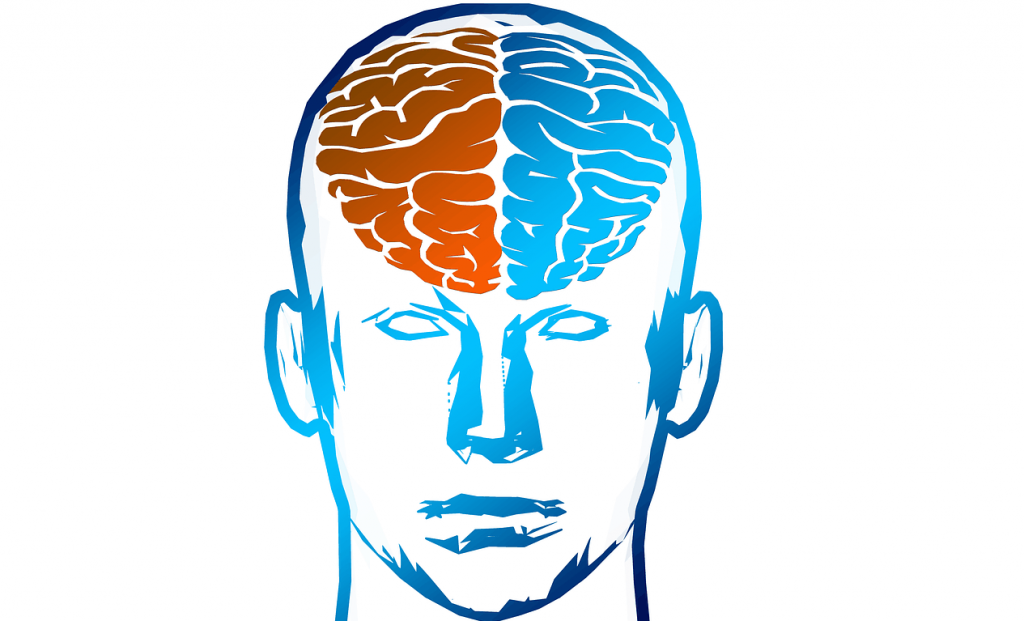
20. Mindset by Carole Dweck
I went back and forth on whether this book should make the cut.
Not because it wasn’t groundbreaking and the information isn’t critically important for coaches to understand, because it was and it is.
But, like Flow by Mihaly Csikszentmihalyi, I found it repetitive and a bit of a slog. And I’m not sure that I learned much that I didn’t already know.
And that’s not because I’m a genius but because – like Flow – it’s a seminal book in the field of positive psychology, and as such, their core precepts have been repeated ad nauseam.
You will encounter clients who have a fixed mindset, and you will encounter others who have a growth mindset.
The former group will think their skills, talents, and opportunities are what they are and nothing much can change that fact.
The latter group will believe they can always change and improve if only they really want to.
You would think the former group would never hire a life coach, but you’d be wrong and they can be a monumental pain in the ass to work with.
Mindset will help you either spot that type of client on a consult call and move on.
Or, spot the issue early on and adapt your coaching style accordingly.
Grab The Book

21. The Structure Of Magic Vol 1 by John Grinder and Richard Bandler
The first book ever written on the topic of NLP introduced the Meta Model of language, and it’s a masterpiece. of a life coaching book.
It’s not really a page-turner but worry not because it’s not that long, and the value is immense.
If you want to understand, or more to the point, not misunderstand, the language your clients use, then this is the book for you.
We all have a tendency to delete, distort and generalize information. We have to do this to stop us from going nuts by analyzing everything to death.
But it also has drawbacks when we presume we know what people mean when we often do not.
Suppose you have a client who is having issues with her husband being unfaithful and kicks off a new session by saying, “He makes me so angry, he’s done it again, and everybody knows he’s an asshole of biblical proportions”
You’d probably conclude the swine has been up to his old tricks.
But how do you know she meant that?
She hasn’t told you who the person is or what he did. And what does she mean by everybody?
I bet your mom didn’t know that, so it’s patently not true.
Sounds complicated? It really isn’t.
Grab The Book

22. The Upward Spiral by Alex Korb
This book kicks off with the assertion that nobody has a broken brain, just a brain that isn’t internally communicating with itself as well as it could.
This is crucially important because too many people with depression think there is nothing they can do about it.
And if they think there’s nothing that can be done about their depression, then that is precisely what they do, nothing.
Korb is a neuroscientist as well as a coach, so he can make statements like that with credibility.
The basic tenet of the book is that there is no one cure for depression and anxiety, but a number of individual things a person can do that then exceed the whole and promote mental health.
This is where the title The Upward Spiral comes from.
A great many people find it easy to slip into a downward spiral but harder to start an upward spiral.
But what if we could go the opposite way and start an upward spiral of one positive event leading to our brain looking for more and more until we’re happy just because we’re happy? Wouldn’t that be cool?
Well, fortunately for you, that is exactly what this book will help you do, and you can then help your clients.
Grab The Book

23. Stumbling on Happiness by Daniel Gilbert
Gilbert takes a look at how the brain works for us and sometimes against us.
The twist is that he presents the information in such a manner that anybody can understand it.
Not only that, but he had me laughing out loud on several occasions and smiling almost throughout.
The book has a downside, though. It will make you realize that you really aren’t that unique.
Well, of course, you’re unique, but you don’t really think that uniquely.
You think you do, so that’s the bit that might niggle you when you finally have to accept that your brain does a great job of fooling you for much of the time.
You’ll learn why it’s almost impossible to predict how you’ll feel about things in the future, hence the reasons why we make so many bad choices.
Why money has almost zero effect on your happiness levels and why it’s literally impossible to know how happy somebody else is, even if they tell you!
Grab The Book

24. Blink by Malcolm Gladwell
Some people miss the fact that this book can really help with personal development.
It’s the best book I have ever read on rapid cognition, also called gut instinct.
If you want to understand the power of your unconscious mind and why you should trust it more often, Blink is your answer.
One of my favourite stories was that of a Fire Chief who stormed into a burning building with his crew.
All of a sudden he yelled for everybody to get out, not knowing why he did it consciously.
The floor then collapsed and he saved their lives.
The Chief thought he had ESP. However, when everything was slowed down and dissected afterwards, what had really happened was his training had allowed him to pick up on several clues.
It turned out that there were actually two fires with one being directly below them.
Not a life coaching book per see, but read it anyway because it’s fabulous.
Grab The Book

25. How To Be Brilliant by Michael Heppell
I couldn’t have such a list without including the book that finally made me realize, ‘Yes, I can do this shit!”
This was one of the first audiobooks I bought on CD way before I became a coach, so to be fair I never read the book itself.
I had the live version of Mr. Heppell delivering the book to an audience and it cracked me up several times.
It’s a mixture of solid business advice, motivational snippets and a lot of humour with a great North East accent that you Americans will die for. Even Brits love a Geordie accent!
If you want to know why you need to take action to clear your garden of weeds and what FEAR really stands for – you may be thinking, false evidence appearing real, but I prefer the other explanation – this will help you out.
Note: I’m proud to say Michael is now a friend of mine and even wrote the intro to my book The Clarity Method. But we became friends because I read the book and liked it, so my bias was already present before I knew the guy.
Grab The Book

26. The 4 Agreements by Don Miguel Ruiz
This book straddles the spiritual/self development divide beautifully.
It’s chock full of ancient Toltec wisdom, and if you can adopt the message and live by it, your life will improve exponentially, and so will your clients
Just in case you’re wondering what the 4 Agreements are, I’m sure it won’t spoil a fantastic book to know they are:
Be impeccable with your word (including don’t gossip)
Don’t take anything personally (need I say more? Nothing is ever personal unless you allow it to be – it’s always the interpretation we give things that make them personal).
Don’t make assumptions (that guy’s an asshole for driving like that in traffic – Oh, what’s that you say, his dad’s dying and in the ambulance he’s following? And by the way, I was that driver following an ambulance after my dad had a stroke, and I was called an asshole)
Always do your best (your best will vary from day to day, so don’t give yourself a hard time if you don’t always attain the same standards – and that goes for coaching. Some days you’ll nail it, some you won’t – that’s just life)
Grab The Book

27. Awaken The Giant Within by Tony Robbins
Robbins may well be the easiest figure in the personal development field to poke fun at.
After all, he’s about 13 feet tall, is outrageously intense, appears to be getting younger year by year and has the shiniest teeth in Christendom.
He also took NLP techniques developed mainly by Bandler and Grinder, repackaged them, re-named them in some cases and then delivered them to the masses as his own material under the umbrella of ‘Neuro-Associative Conditioning’.
To the best of my knowledge, he never explicitly claimed credit, but neither did he go out of his way to credit others and he pissed off a lot of the NLP community nonetheless.
Awaken The Giant Within introduces some very powerful NLP ideas that are relatively easy to employ and can be life-changing.
And the story about how Mr Honda started Honda Automobiles is worth getting the book for alone.
Grab The Book

28. Prometheus Rising by Robert Anton Wilson
There is an NLP Presupposition that says, ‘The Map is not the Territory’
This book could have been, quite easily and accurately, called that.
Wilson was a maverick and a quite brilliant thinker, of that there is no doubt, and he will stretch your thinking.
Prometheus Rising gets a bit weird in places, such as when he suggests dressing up as a Nazi and goose-stepping around to get a feel for what it felt like.
And his humour is somewhat dark and off the wall.
However, there is a very important message pertaining to what we believe reality is, and, probably more importantly, what we believe it isn’t.
The paradox with this book is close-minded, my way or the highway types are the people that would get the most out of it, but they are the least likely to read it.
Or if they do read it they’ll just dismiss Wilson as some pot-smoking, liberal intellectual. Which is, of course, is precisely what he was.
Grab The Book

29. The Myths of Happiness by Sonja Lyubomirsky
Okay, so forgive me for melding this book into her equally great offering called The How of Happiness because I’m doing an amalgam here because I read both books a number of years ago.
Most wannabe parents would confidently predict that having kids will make them happier, after all, why else would they want them?
And I’m sure that most parents would cement that belief by announcing that they have felt happier since having their own children.
Yet statistically speaking, both groups would be wrong.
Having a family does not increase happiness levels and can actually have the opposite effect.
But social taboos and cognitive biases prevent most of us from accepting that fact – even to ourselves.
Not everything Lyubomirsky explains can make us happy is quite so contentious such as mixing our lives up as much as possible so events don’t become routine.
Having said that, this is not a book for those people who are not prepared to challenge their thinking.
Grab The Book

30. The Storyteller’s Secret by Carmine Gallo
Since around 2010 I have read a fair few books on the topic of storytelling but none as good as The Storyteller’s Secret by Carmine Gallo.
What Gallo does brilliantly is curate some of the most memorable storytelling throughout history and dump them all in one place.
You may have heard about how Steve Jobs crushed his presentation for the first iPhone by telling the audience he had three new launches to talk about when he only had one.
Equally, you may know how an interview with Bill Gates went viral just because the Microsoft founder drank a glass of water.
And you could have heard about how Starbucks’ CEO, Howard Shultz, exploded a company based on the back of a very short story that wasn’t even about coffee but an experience.
However, I doubt you will know that one of the greatest orators of the twentieth century, Winston Churchill, spent hours simplifying his speeches and removing as many words with too many syllables as possible.
Or that Churchill’s first attempt at public speaking was an unmitigated disaster.
Or even that probably one of the most well-known televangelists in the world, Joel Osteen, used to be a nervous bumbling wreck before and during sermons.
And you may not know why the last two sets of examples I gave were both in sets of three.
But all of that is revealed in The Storyteller’s Secret.
Gallo’s book is a treasure chest of ideas for blog posts, giving presentations, telling stories to help clients and even writing copy for a website.
He demonstrates time and time again the unequivocal power of storytelling with, not surprisingly, dozens of compelling stories of his own.
Grab The Book

The one I didn’t like…at all!
31. The Prosperous Coach by Steve Chandler and Rich Litvin
This life coaching book was average at best and pompous and misleading at worst.
The Prosperous Coach contained numerous contradictions and was long on platitudes and short on actionable advice.
It’s been overhyped in the same way as The Four Hour Work Week was.
In other words, 99.9% of readers will never reach the level of success/freedom the authors claim they can, by following their model. Nonetheless, I have met dozens of coaches who rave about the book who had no fucking clients!
The overwhelming majority eventually realize it’s not quite as easy as just talking to people and that an understanding of marketing (which is remarkably absent from this book), is, without a doubt, necessary.
One of the tenets of the book is to do free 2 hours or longer deep dive sessions with prospective clients to demonstrate the value of coaching.
Time and again, I have seen coaches asking in Facebook Groups, ‘how do I convert people after a discovery call or deep dive?’ Or complain that they’ve spent scores of hours coaching for free with no sign-ups.
And I’m not in the least bit surprised because it’s so hard to convert that type of client for somebody who isn’t a skilled salesperson.
The hardest sell in the world is from free to paid because you have done something that in sales is called ‘price conditioning’, but you have done it the wrong way.
In other words, you have conditioned your prospect to free and you have effectively told them that you don’t put that much value on your time.
I could name a dozen very successful coaches who charge tens of thousands of dollars per client, and not one adopts this approach.
What are your favourite life coaching books?
Come on, spill the beans
I’ve shared mine; let’s hear yours in the comment section below.

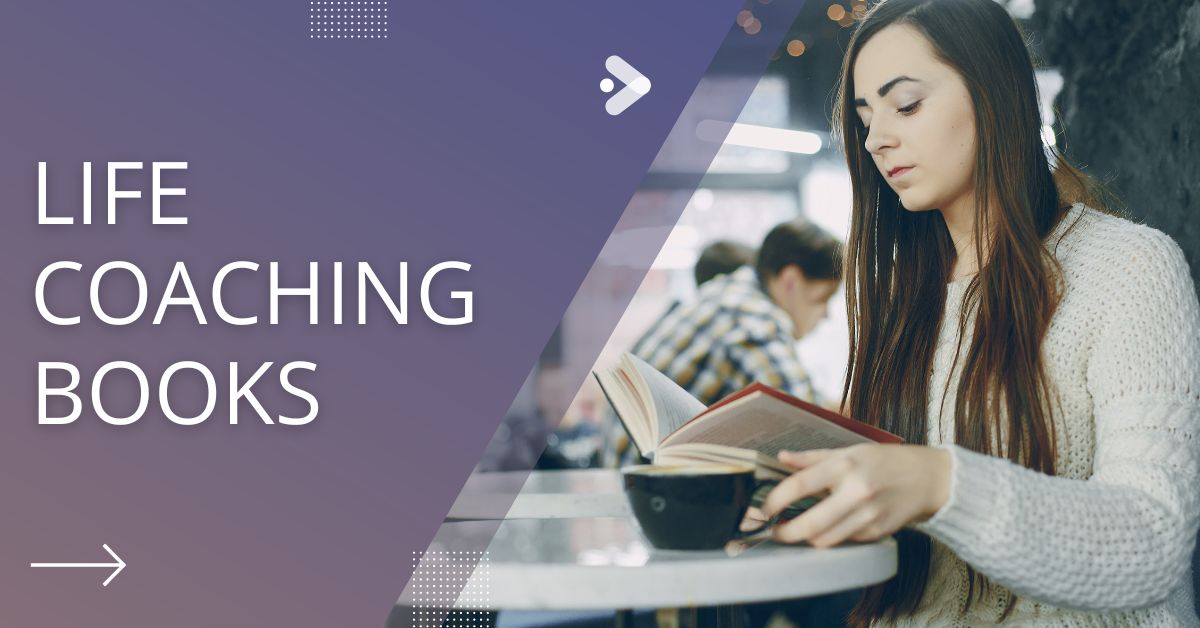
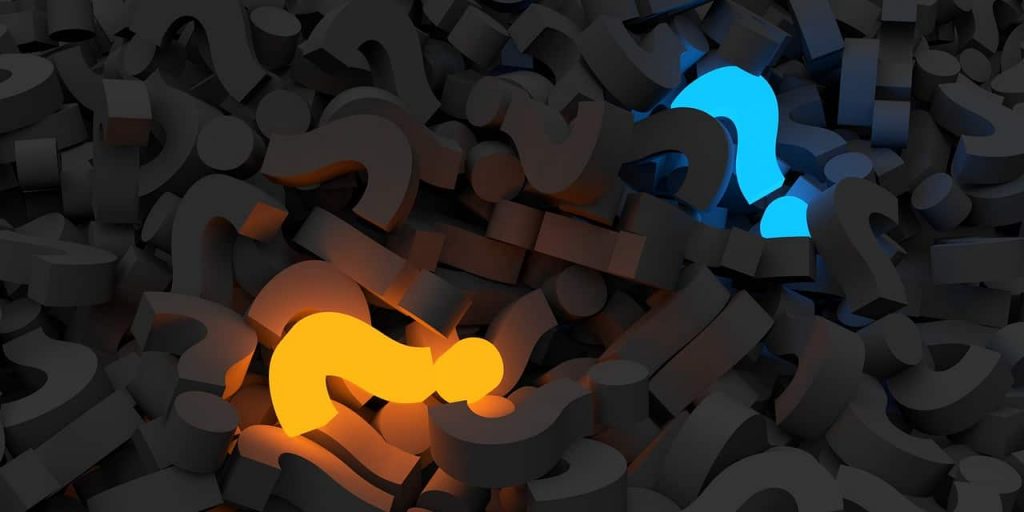

The one I am reading now: Hidden Blessings: Midlife Crisis as a Spirutual Awakening, by Jett Psarsia, PhD and the one written by the founder of my coach training school, New Ventures West, James Flaherty, Coaching, Evoking Excellence in Others.
Not one I’m familiar with Victoria, thanks!
I may have mentioned it before – in an answer to another blog of yours, but it definitely is “A New Earth” by Eckhart Tolle.
One of my favourite quotes in that book, and paraphrased here, can be found on page 201 (Hardcover book): “Become friendly with the present moment – in whatever guise – and life will become friendly (and ) more cooperative”.
Great list here Tim: a couple that I’ve got on my shelf and not read yet that you’ve prompted me to open, and a couple I’ve not come across before. I think you have to add Carol Dweck’s Mindset to the canon. I’ve also found Tal Ben Shahar’s Happier really useful as a coach – it’s an easy read, is properly based in positive psychology and has ideas you can adapt for using with clients as well as explaining what conditions are needed for happiness.
I probably considered 40 books before I wrote this and yes, Mindset was one of them. My only complaint with it was you could really explain the concept in a blog post. A bit like t Habits, it felt like the author was on a word count from her publisher and she had to pad it out. And I keep meaning to order Happier, so I’ll do it this morning!
I thoroughly enjoyed “The Big Leap” by Gary Hendricks… and I recently read “The Celestine Prophecy” by James Redfield…. despite reading several poor reviews I actually enjoyed it and was able to understand and appreciate the principles that author was presenting.
I read The Celestine Prophecy over 20 years ago and I can’t remember a damn thing about it!
The Celestine Prophecy is a delusional load of old nonsense. Save yourself some time and burn any copy of this book which comes within your line of sight.
LMAO. Well I’m guessing I didn’t care for it otherwise I’d remember it and I gave it away years ago.
I absolutely love the audio version of “Awaken the Giant Within”. His charismatic voice brings his words into life. A quick motivation trigger. “Frogs into Princes” by Bandler and Grinder is another memorable one for me. I just got the “Structure of Magic”, which is on your list.
Frogs Into Princes is a classic, probably better than The Structure of Magic Vol 1′ in many respects. I’m amazed that it has never come back into print although, the way Bandler and Grinder despise each other may have something to do with that.
I was surprised that you did not list any of Joe Dispenza’s books, “Evolve Your Brain,” “Breaking the Habit of Being Yourself,” and “You are the Placebo.” I found them an exciting and excellent read. You can also find him on Youtube.
I almost choked on my water then thinking you meant Joe Vitale!!
I haven’t actually read any of Dispenza’s books, so thanks I’ll check what there is on Audible. Which would you suggest is the best starting point?
Yes! Paully, I agree 100%, I was just about to say the same thing! Tim, you missed one of the BEST books in my opinion, Joe Dispenza’s “You Are The Placebo” is of my favorites on the psychology of change and neuroscience. He breaks down some complex ideas into simple and practical ways to change your beliefs and become limitless. He might make the next round of best books by Tim Brownson! 🙂 I love your list Tim, I’ve read 4 of them on there and now have a benchmark of others I need to read too!
Ok, ok, so I downloaded ‘You Are The Placebo’ and it’s next up. It better not suck! 😉
I’m currently reading “The Mindful Way Through Depression”, which combines two of my favourite subjects: effective treatments for depression and mindfulness.
Hi Tim, great list. I’ve read a few of them. I think I’ll reread them and some of the others on your list. I would also recommend Dr Joe Dispenza, my favourite to date is You Are the Placebo.
There’s a bit of a lovefest going on here for the good doctor!
The one I am reading and recommending to my fellow Millenial clients is “Enough Already” by Mike Iamele which is really good about reevaluating what success means to us personally and how to break from the success mythology that we are spoon fed from birth.
Sounds interesting, thanks!
Hey Tim (and others) – great list (and add-ons) agree on all that I have already read and can’t wait to read others (who are new authors to me). I would add Time to Think by Nancy Kline, Daring Greatly by Brene Brown. Cheers.
Thanks Maura!
“Switch” by Chip and Dan Heath is one of my favorites – especially helpful if you want to provoke or catalyze a sustainable change (i.e. if you are a coach of any sort). It’s a quick, interesting read chock full of great anecdotes that illustrate why it’s so important to give clear direction for the logical part of the mind, tie in to inherent motivation to harness the power of emotion, and look at ways the environment (or system) needs to be tweaked to reinforce and support the change. Sounds like a good companion piece to “The Willpower Instinct” you mentioned above. Thanks for the list – several new ones to add to my collection – and I consider myself to be well read!
I’ve read ‘Switch’ and I agree it’s really good. Not really personal development by I also loved both the Superfreakonomics books.
Adding onto the Miguel Ruiz theme I have found “The Mastery of Love” to be one of the most powerful books on relationships that I’ve ever read. It’s one of the books I recommend over and over with amazing results and feedback from my clients, especially with men. My wife and I are currently listening to the audio version which is narrated by Jill Eikenberry and Michael Tucker of the tv series LA Law and we’ve already had a major positive change in our marriage and big crocodile tears from me.
Seeing how much I liked T4A, not really sure why I haven’t read any more of his work, I shall add it to my wish list on Audible.
BTW, not sure of this is a UK/US thing, but in the UK crocodile tears are fake tears used to gain attention, is that what you meant?
Thanks for the crocodile tears clarification …. and quivering lips and belly sobs along with lots of tears but I suppose that as a human part of the evolutionary advantage of tears is “attention” so yes I was getting attention:)
You’re missing “Better Than Before” by Gretchen Rubin. I like all of her books, but this one is about habits and the role they play in our lives, how to form them, etc.
Thou shall readest and report back as to thy opinion. I’ve no doubt you’ll be honest.
Well I haven’t read that one, but ‘The Happiness Project’ was possibly the single worst book I have ever read on the topic of happiness.
Good stuff! As far as the ‘worrying’ thing goes (I’m a life long worrier!) – it depends on what you do with the worrying – do you use it as a tool, note when it goes by and not get too wrapped up? Or do you internalise everything to the point of health issues? If you can use worrying as a tool and not a method of paralysis, it works. A good meditation practice helps with keeping the worrying as a tool, I think. Looking forward to reading these!
I love all of these new book recommendations! This will keep me occupied until I am close to expiring!!!
So here are my favorites:
Byron Katies “The Work – 4 Questions that Can Change your LIfe” a simple process of asking yourself (or your client) 4 questions that investigate the truth and validity of our beliefs. I use this process with clients all the time and it is priceless. The process is reminiscent of a mindfulness inquiry.
3 books by life coach Martha Beck:
“Wisdom from Finding your own North Star”.
“Steering by Starlight: Find your Right LIfe No Matter What!”
“Finding your Way in a Wild New World”.
I love and appreciate her unconventional approach to life coaching and some of her processes are really “out of the box”!
“The Presence Process” by Michael Brown
Probably the best personal growth process that I have ever done in this lifetime. And I have done pretty much all of them. After doing this, I was clearly DONE! Takes care of most all of your emotional imprints that still get triggered. What I particularly liked about this is that you are your own therapist as Michael refuses to train anyone to lead this process.
Because I also teach my clients mindfulness practices, I use books by Jon Kabbat-Zinn, Jack Kornfield and Pema Chodron
“Mindfulness for Beginners” by Jon Kabbat-Zinn
“Seeking the Heart of Wisdom – The Path of Insight Meditation” by Jack Kornfield and Joseph Goldstein
“One Small Step Can Change Your Life – The Kaizen Way” by Robert Mauer, Ph.D.
This is about the Japanese method of Kaizen which is that to make lasting change it is more effective to take very small doable steps that can be digested easily.
There are more great books in my repertoire but I think this is enough for now.
Love Jon Kabbat-Zinn, Jack Kornfield and Pema Chodron!
I have to say I wasn’t a big fan of ‘north Star’. However, I think that was because I read it after I’d read hundreds of other books and it didn’t really offer anything new. I think maybe at the time of publication it was more groundbreaking.
Have you read Mel Robbins’ “The 5 Second Rule”? What do you think of it? (If you read it).
Nope sorry I haven’t. I’m aware of her but no first hand knowledge.
Hi. Sure.
Best for life values..
“The Little Prince”
Amazing post, thank you Tim! So many good books here – I can’t wait to get started on some of them. Here’s a few I’ve found personally transformational and that I use a lot of the concepts from in coaching:
The more spiritual side:
The Power of Now, Eckhart Tolle
The Seat of the Soul, Gary Zukav
1)When Things Fall Apart, 2)Getting Unstuck, Pema Chodron (I love her on Audible because her voice is so soothing and she has such a great sense of humour
More counselling/social work:
Getting the Love you Want, Harville Hendrix
1)Daring Greatly, 2)The Power of Vulnerability, Brene Brown
Metaphysical/Psychology:
The Body Keeps the Score, Bessel van der Kolk (not quite through this one yet)
Wow! Interesting list.Looking forward to reading them all 🙂
As always, great list! One book I have read more than once is Byron Katie’s The Work, but something about it doesn’t sit well. What are your thoughts about it? I know I can count on your honest feedback. Thanks!
I have read it a few years ago and in all honesty, it doesn’t stick in my mind one way or the other.
So, I’m guessing I thought it was ok, but probably didn’t do for me what others say it did for them.
Thanks for sharing your book list. I have also found all the books by Brene Brown to be fantastic- The titles are And I thought it was just me, The gifts of Imperfection, Daring greatly, Rising strong , Braving the Wilderness, and Dare to lead.
I’ve heard good stuff Cherri, thanks for mentioning!
Great recommendations! I’ve added some of these to my reading list.
I agree with your opinion on The Prosperous Coach. I actually love Steve Chandler’s other books, but that one just seemed SO pompous and yes, contradictory. It’s just a bait and switch tactic that I highly doubt actually works. “Want a free coaching session? Great! Blah blah blah! Didn’t I change your life forever? Now buy my stuff! Oh, and I charge $4,000,000 per year.”
No one wants to be sold to on a free session… I think it’s better to be upfront and honest and offer discovery sessions where you lead off saying, “Ok, here’s how it works! At the end we’ll talk about how we can work together. Sound good?” Otherwise you’re being misleading or just wasting everyone’s time.
I have tried both tactics too, and I have not had success with “free” coaching with a sell at the end. Maybe if you are a masterful salesperson, that could work for you, but for me I like the authenticity of telling people what to expect. If someone is curious, they are happy to do a discovery call.
Interesting you say that Kielecia because a coach in the Coach the Life Coach Facebook Group said he really likes Steve Chandler’s other stuff. Maybe this was just a money grab?
Very interesting article. I thought it was interesting that you ranked PC last. I have to say that I found the book helpful and have converted my past 4 clients by offering them several complimentary sessions before they signed on. I do find Rich Litvin to be a bit pompous…ok, maybe more than a bit. But I can see some benefit to a focus on servicing my potential clients first, as I’ve seen it work with my 4 most recent clients. Then again, it could just be because I’m just that good 🙂 (lots of sarcasm here), haha.
I didn’t rank it last Justin because the books weren’t ordered. I could have a list of 250 books and it would still be a 251, I thought it was terrible.
It was confusing, the authors contradicted themselves and the information is almost impossible to implement for 99.9% of coaches, you just happen to be in the 0.1%.
Giving away several free sessions to clients is simply not practical for the vast majority of coaches.
It *can* work for coaches who charge a LOT like Litvin and Chandler, and/or coaches who have some serious sales skills.
I think you may be underestimating yourself.
This is a great list, but I noticed something. Only 4 books out of 31 were authored (or co-authored) by women. Clearly, in a field with many women as practitioners, there are more good books on coaching by women than 4.
Have you not found books by women authors that you felt were good enough for the list? Or have you not ready many?
Some examples:
Simplifying Coaching: How to Have More Transformational Conversations by Doing Less – Claire Pedrick
The Coaching Manual – Julie Starr
TimeSavor Coaching: Positive Psychology coaching for ADHD – Virginia Hurley
I read The Coaching Manual and didn’t get a lot from it. And I don’t know the other two.
I just listed the books I thought were the best that I had read.
There were actually 5.